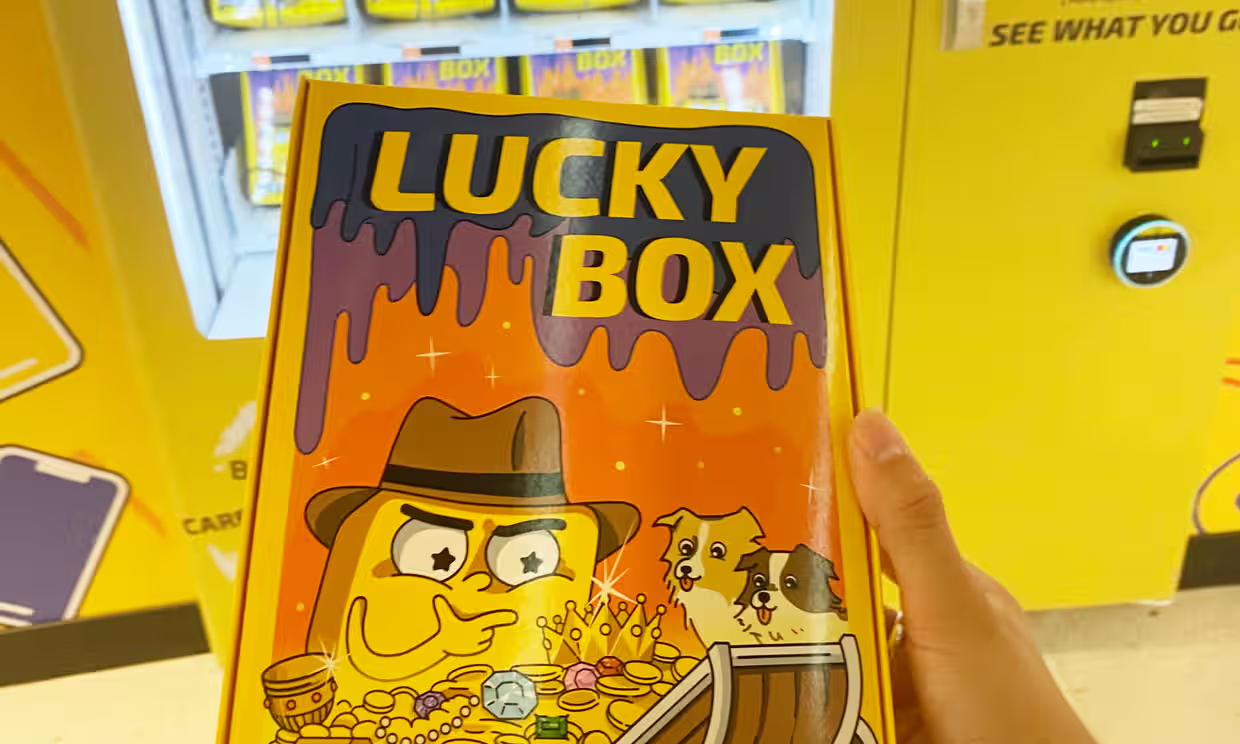‘Lucky Box’ Vending Machines Spark Gambling Concerns in Australia
Jun 3, 2025
A new trend in Australian shopping centres has triggered growing concern among child welfare advocates and consumer rights groups. So-called “Lucky Box” vending machines, which dispense random mystery prizes for a flat fee, have begun appearing in malls and entertainment venues, offering users the chance to win items ranging from candy and plush toys to electronics and gift cards — all for $20 per play.

While the machines appear harmless at first glance, experts warn they may be introducing children to gambling-style behavior under the guise of entertainment.
🎲 How the Machines Work
The vending machines operate much like claw games or arcade prize systems but with one key twist: every $20 purchase gives the player a sealed “mystery box” containing a random item. Prizes vary widely in value, with a slim chance of winning higher-end goods like gaming consoles, headphones, or movie tickets. Most boxes contain items worth far less than the entry cost.
There is no way for users to know what they’ll receive, and no guarantee of receiving something of equal or higher value, which critics argue closely resembles the structure of gambling.
⚠️ Advocacy Groups Raise Red Flags
Organizations such as Financial Counselling Australia and several child protection charities have voiced concern over the machines’ presence in locations easily accessible to minors. They argue that the setup exploits the same psychological reward loops found in casinos or online gambling apps — specifically the thrill of chance, loss-chasing, and impulsive spending.
“These machines are being marketed to children and teens, many of whom don’t fully understand the odds or the financial implications,” said one youth advocate. “It’s commercialized gambling dressed up in bright colors.”
⚖️ Legal Grey Area
One of the biggest concerns stems from the lack of regulatory oversight. Because the machines don’t offer cash prizes or explicit gambling mechanics, they fall outside the jurisdiction of most gaming commissions. This regulatory gap means there are no clear rules governing age restrictions, prize fairness, or refund policies.
Consumer advocates are calling for urgent reforms, including age restrictions, transparency in prize value ranges, and mandatory warning labels similar to those found on video games with loot box mechanics.
🎮 Part of a Bigger Trend
The Lucky Box vending machines echo elements of the loot box model in video games — a controversial mechanic where players spend money for randomized digital rewards. This resemblance has sparked wider debate about how randomness-based monetization should be regulated across both digital and physical platforms.
As similar machines begin appearing in other regions and franchise chains consider adoption, lawmakers may be pressured to take a closer look at how “fun” and “chance” are packaged and sold to children.